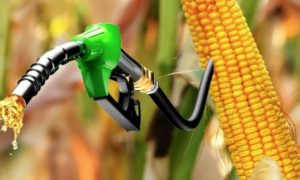From E-20 to E-27: Industry calls for National Ethanol Mobility strategy

ISMA and IFGE urge the Indian government to launch a ‘National Ethanol Mobility Roadmap’ beyond E-20, rationalize GST on Flex-Fuel Vehicles and Smart Hybrids, and introduce consumer incentives similar to FAME. These steps aim to boost ethanol adoption and sustain India’s green energy momentum.
The Indian Sugar & Bio-Energy Manufacturers Association (ISMA) and the Indian Federation of Green Energy (IFGE) have jointly called on the Indian government to introduce a ‘National Ethanol Mobility Roadmap’, charting a clear trajectory for ethanol blending beyond the current E-20 milestone. The organizations are also urging GST rationalization on Flex-Fuel Vehicles (FFVs) and Smart Hybrids, along with consumer incentives akin to the FAME scheme for electric vehicles, to maintain the momentum of India’s ethanol revolution.
This appeal follows India’s achievement of E-20 blending five years ahead of schedule, a milestone that has garnered global recognition and reinforced the country’s leadership in sustainable mobility and energy security. The success reflects robust government guidance and strong collaboration between the sugar, bioenergy, and automotive sectors, positioning India as a model for fuel transition worldwide.
The sugar industry has invested approximately Rs 40,000 crore to develop an ethanol production capacity of over 900 crore liters per year, creating a robust foundation to support blending beyond E-20. These investments have generated steady demand for sugarcane, accelerated cane arrears clearance, improved mill cash flows, created millions of rural jobs, and spurred research into high-yield, sustainable feedstocks for ethanol production.
“India’s sugar sector has exceeded its ethanol blending targets ahead of schedule,” said Deepak Ballani, Director General of ISMA. “To continue this revolution, policy continuity is crucial. With ethanol production at 1,776 crore liters—well above the Oil Marketing Companies’ requirement of 1,050 crore liters—the sector is ready to support a 27 per cent blend. Without a clear roadmap, production capacities risk remaining underutilized, investments could idle, and biofuel innovation may stagnate. A phased, time-bound roadmap is essential to provide clarity on blending milestones, vehicle adaptation standards, and advancements in 2G/3G ethanol, Sustainable Aviation Fuel (SAF), and green chemicals.”
The appeal also highlighted financial strain caused by stagnant ethanol procurement prices from B-heavy molasses and juice over the past three years, which threatens further sectoral growth. A clear roadmap beyond E-20 is therefore critical to ensure full utilization of existing capacity and sustained improvement in farmer incomes.
“India’s ethanol success demonstrates the strength of industry-government collaboration,” said Dr. Pramod Chaudhari, President of IFGE. “A National Ethanol Mobility Roadmap for 2030 with defined targets beyond E-20 will integrate vehicle standards, encourage advanced biofuels, and open pathways for green chemicals. This will secure long-term investments, accelerate R&D in next-generation technologies, and cement India’s position as a global leader in sustainable bioenergy.”
The joint appeal emphasized the role of Flex-Fuel Vehicles (FFVs) and Smart Hybrids in India’s transition from traditional internal combustion engines to cleaner alternatives. Capable of running efficiently on ethanol blends up to E-100, these vehicles could significantly reduce emissions and reliance on petroleum. However, the current GST rate of 43 per cent on FFVs and Smart Hybrids remains a major hurdle, especially compared with the 5 per cent GST for EVs. With appropriate policy support, FFVs could potentially cut India’s annual oil import bill by Rs 50,000–75,000 crore, enhance energy independence under the Atmanirbhar Bharat vision, and accelerate progress toward Net Zero 2070.
Reaffirming their commitment, ISMA emphasized that the sugar and bio-energy industries remain central to supporting farmers and India’s clean energy transition. Both ISMA and IFGE stressed that continued policy clarity and incentives will convert current enthusiasm into long-term benefits—ensuring stable farmer incomes, driving industry growth, and laying the foundation for a sustainable, self-reliant mobility future in India.
To Read more about Ethanol Industry & Bio Energy News, continue reading Agriinsite.com
Source : Agro Spectrum India















